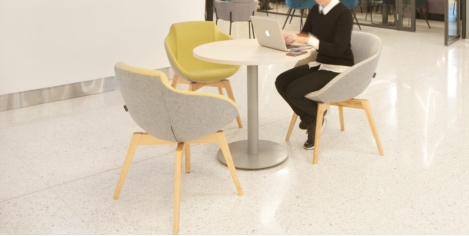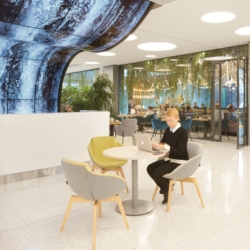To provide the best experiences, we use technologies like cookies to store and/or access device information. Consenting to these technologies will allow us to process data such as browsing behaviour or unique IDs on this site. Not consenting or withdrawing consent, may adversely affect certain features and functions.
The technical storage or access is strictly necessary for the legitimate purpose of enabling the use of a specific service explicitly requested by the subscriber or user, or for the sole purpose of carrying out the transmission of a communication over an electronic communications network.
The technical storage or access is necessary for the legitimate purpose of storing preferences that are not requested by the subscriber or user.
The technical storage or access that is used exclusively for statistical purposes.
The technical storage or access that is used exclusively for anonymous statistical purposes. Without a subpoena, voluntary compliance on the part of your Internet Service Provider, or additional records from a third party, information stored or retrieved for this purpose alone cannot usually be used to identify you.
The technical storage or access is required to create user profiles to send advertising, or to track the user on a website or across several websites for similar marketing purposes.
 Owl Labs and Global Workplace Analytics have just released their sixth annual State of Remote Work report. Based on a survey of over 2,300 full-time workers across the United States, the report reveals the latest trends and perspectives on a range of issues from remote work and hybrid work, trust, intent to move, training offered, workplace redesign, intent and reasons for quitting, technology needs, employee surveillance, the 4-day workweek, and more.
Owl Labs and Global Workplace Analytics have just released their sixth annual State of Remote Work report. Based on a survey of over 2,300 full-time workers across the United States, the report reveals the latest trends and perspectives on a range of issues from remote work and hybrid work, trust, intent to move, training offered, workplace redesign, intent and reasons for quitting, technology needs, employee surveillance, the 4-day workweek, and more.




































October 20, 2022
The rotting one hit wonders of the workplace
by Mark Eltringham • Comment, Flexible working, Wellbeing